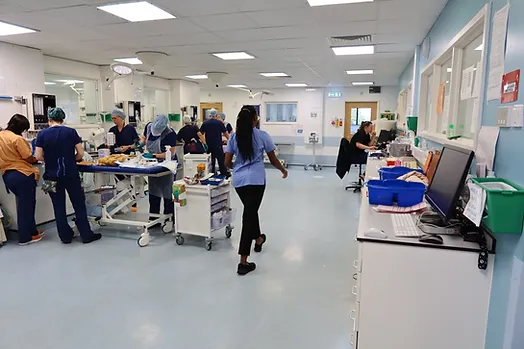Returning to veterinary clinical work after a career break can be daunting. Whether you have had time off for maternity leave, health reasons or to pursue another career or interest, getting back in the consult room sometimes needs you to step out of your comfort zone.
However, the good news is that much like riding a bike, you won’t forget. Firmly embedded in your long term memory are the skills you nurtured before time off, that made (and still make) you a valuable member of the team. Of course, depending on the length of time away from the profession, these skills may be a little rusty, but with the right support around you, you will soon be back in the swing of things. Read on for our ten top tips to make the transition back to veterinary practice as smooth as possible.
1. Stay in the loop while you are away
With technology at our fingertips, staying in touch with colleagues has never been easier. Veterinary social media forums are a great source of clinical debate and current thinking, and practice WhatsApp groups can help you stay in the loop closer to home.
If you have had a more prolonged spell out of clinical work, why not consider ‘seeing practice’? Most veterinary clinics will be glad of the extra pair of hands, and it will help get you up to speed.
2. Sign up for some CPD
Keep your knowledge up to date while you are away. With no shortage of webinars available, and many that are free, keeping up with CPD requirements has never been easier.
Many CPD providers also offer some great courses tailored to those who are returning to veterinary practice after some time away.
3. Work enough hours to build and maintain confidence
Staying confident, and feeling competent, can be hard, especially if you are returning to veterinary clinical work on a part-time basis. Working too few hours can make it harder. Two or three days a week may be the minimum for some, while every other Saturday, is enough for others. There is no right or wrong – the most important thing is to make sure that your agreed hours are right for you.
And when it comes to negotiating hours, don’t be afraid to ask for flexible working conditions. More and more practices are recognising the value of this in recruiting and retaining veterinary surgeons and RVNs.
4. Muscle memory
If the prospect of spaying a cat on your first morning back fills you with trepidation, rest assured that your muscle memory will kick into gear. When actions get repeated over and over again, they move from our short-term to our long-term memory. From tying surgical knots to handling surgical instruments, your muscle memory will help you feel as if you have never been away.
5. Give yourself a break
Don’t expect your consulting room patter to be at the tips of your fingers from the word ‘go’. After all, even the first few consults back after a two week summer holiday take a bit of getting used to. It may take a few days, but before long your consult room chat will be flowing just as before.
6. Check practice protocols
It is worth familiarising yourself with practice protocols for those routine appointments – parasite prevention, vaccination regimes, timing of neutering…. Even if you are returning to your existing workplace, it’s a good idea to make sure that nothing has changed in your absence.
7. Nurture a special interest
Always had a passion for veterinary cardiology? Or how about orthopaedic surgery? Develop your interest, tailoring your CPD accordingly. Maybe something for a little further down the ‘return to work’ line, having a particular interest is a great way of building professional confidence. Being the go-to colleague for cardiology questions, or whatever other topic inspires you, can help you feel very much part of the veterinary team.
8. Keeping in touch days
During maternity leave, keeping in touch days are a good way of staying connected. Enabling you to work up to ten days without losing any maternity benefits, they can help ease return to work worries. Remember that you must still be registered as practising with the RCVS.
9. Have a veterinary mentor
Ask for help if you need it. A veterinary mentor can be hugely beneficial, especially if you are lacking confidence or direction. This might be a trusted colleague who you can check in with regularly. Or how about a career coach? A one-to-one programme tailored to your individual needs can be career-changing.
10. Use a veterinary recruitment company
And finally, use a specialist veterinary recruitment company like JHP Recruitment. We take the time to really get to know you, as well as having expert knowledge of current vet jobs that are available. We can help you find the veterinary practice that will give you the support you need to ease the transition back into the workplace.
So, believe in yourself. And never forget that time away from veterinary practice will change you, and often for the better. Whatever the reason for your career break, you may well return to practice a better vet than when you left, full of ideas and enthusiasm.
What are you waiting for? Get in touch today to discuss your next move: [email protected]


